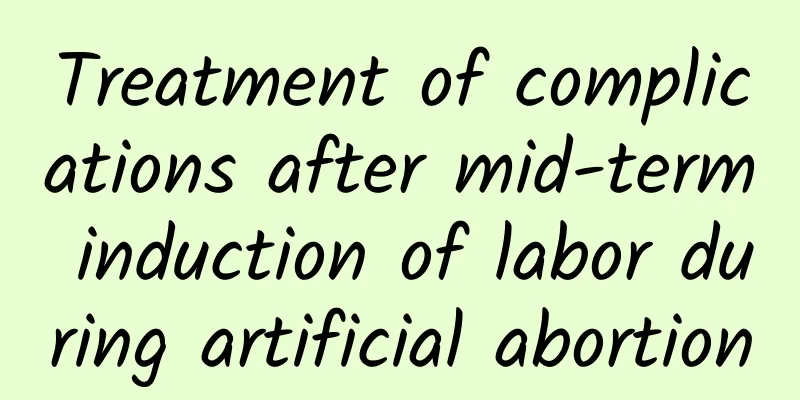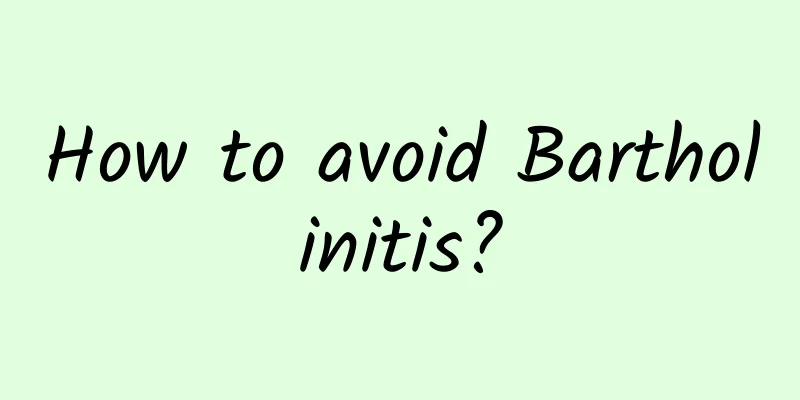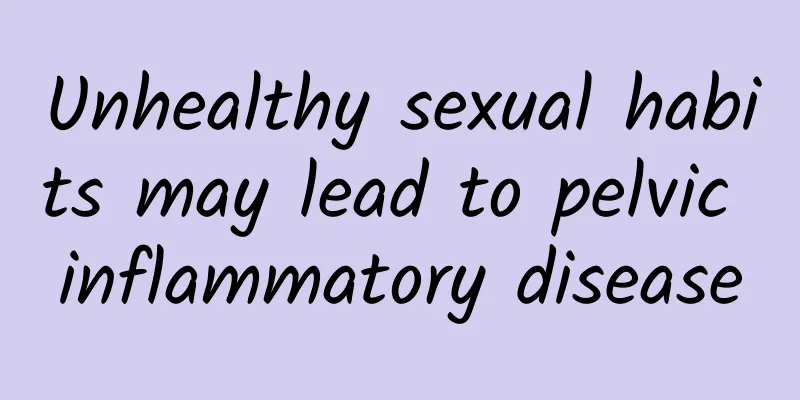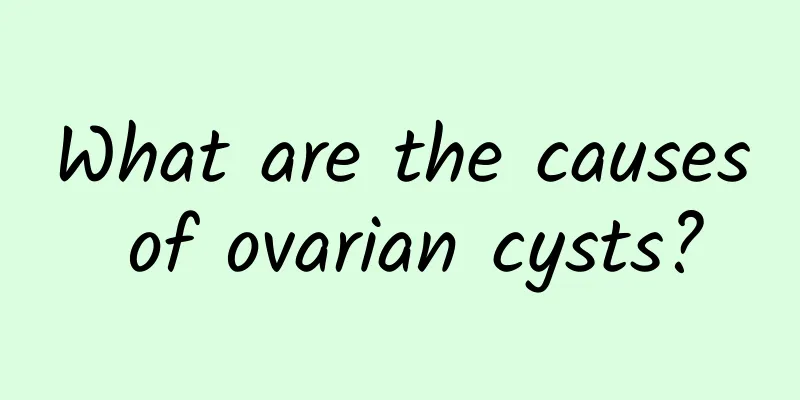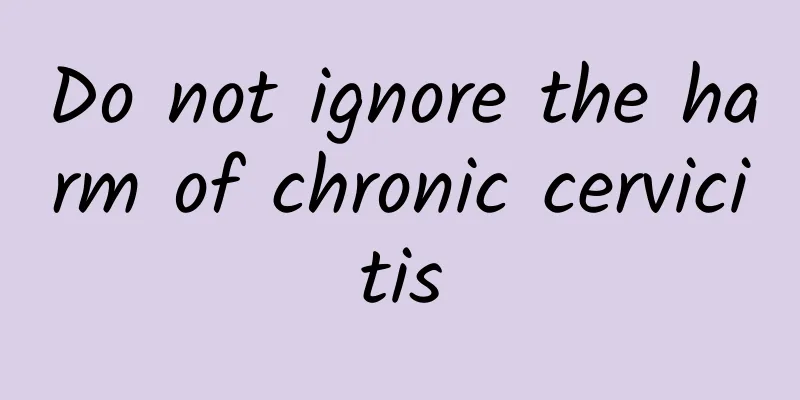Will ovarian cysts recur after ovarian removal?
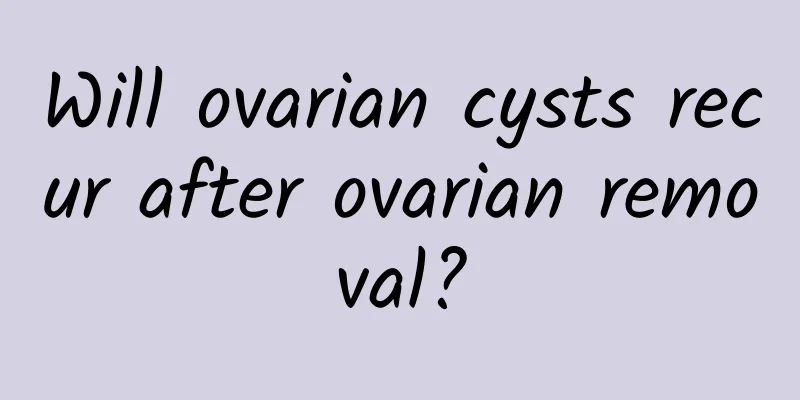
|
Will ovarian cysts recur after ovarian removal? Ovarian cysts are the most common ovarian lesions clinically. They belong to ovarian interstitial cell lesions and have no effect on the human body. Clinically, it is necessary to observe the size and number of ovarian cysts. If the ovarian cyst is relatively large, it may cause symptoms of compression of the surrounding tissues, and a mass may be felt in the abdomen. If strenuous exercise is performed, ovarian cyst pedicle torsion and acute abdomen may also occur. If the ovarian cyst grows rapidly or the maximum diameter is greater than 5 cm, surgical resection may be considered. Rapid intraoperative pathology and postoperative pathology examinations can further clarify the nature of the ovarian cyst. If the ovarian cyst is relatively small and grows slowly, and physiological cysts are not ruled out, it is also possible to continue to observe without rushing for surgical treatment. Under normal circumstances, ovarian cysts are prone to recurrence after removal. The cause is still unclear, but it is mainly due to abnormal proliferation of ovarian tissue. Therefore, people with ovarian cysts are also prone to recurrence after surgical removal. Therefore, people with cysts must change their diet, reduce stress, and adjust their work and rest schedule to see if they can get relief. Pathology is generally required after ovarian cyst removal to see whether the cyst is benign or malignant. Once a cyst is formed, a pathological examination must be performed after removal. If it is benign, it should not be a big problem. If it is a malignant ovarian cyst, corresponding radiotherapy and chemotherapy are required after surgery. Generally speaking, patients with ovarian cysts have a chance of recurrence, but individual situations are different. Some have a higher recurrence frequency, while others have a lower recurrence frequency. Under normal circumstances, women with ovarian cysts should avoid strenuous exercise or excessive labor, especially during menstruation. In addition, contraceptive measures should be taken during sexual intercourse, and artificial abortion should be avoided or performed less frequently. Since artificial abortion increases the incidence of ovarian cysts, patients with ovarian cysts should remain optimistic, adjust their mentality, face the disease, and avoid high tension or mental stimulation, which will help treat ovarian cysts and increase women's immunity. Patients with ovarian cysts should go to the hospital for B-ultrasound regularly to observe the growth trend of the cysts. |
<<: Causes of menstrual disorders
>>: What are the symptoms of blood deficiency type menstrual disorders
Recommend
What examinations are needed for habitual miscarriage?
Habitual miscarriage can cause serious harm to wo...
Cold hands and feet, press these 4 acupoints to regulate the meridians and relieve
The weather is chilly and cold hands and feet are...
What should I do if I have postmenopausal bleeding?
What should I do if I have postmenopausal bleedin...
Can ovarian cysts be cured?
Can ovarian cysts be cured? Malignant ovarian cys...
What should women eat after uterine fibroid surgery? 7 questions women should pay attention to after uterine fibroid surgery
Women with uterine fibroids need to spend a lot o...
Is there a best surgical treatment for ovarian cysts?
Ovarian cysts are usually treated surgically. Tra...
What is the B-ultrasound for uterine fibroids? Do I need to fast for B-ultrasound for uterine fibroids?
What is the B-ultrasound for checking uterine fib...
How to best deal with ectopic pregnancy
Generally speaking, there is no best way to deal ...
How to lose weight during menstruation? You can drink more soy milk
Women all hope to become more beautiful. I believ...
How does the hospital treat premature ovarian failure?
For premature ovarian failure, try to go to local...
What are the symptoms of multiple uterine fibroids? Are multiple uterine fibroids serious?
What are the symptoms of multiple uterine fibroid...
What are the common manifestations of uterine fibroids?
Uterine fibroids are the most common benign tumor...
Vulvar pruritus White lesions of the vulva
Vulvar pruritus accompanied by vulvar white lesio...
High-intensity intermittent exercise can reduce fat. Don't ignore the three major danger signs
Ming Dao, the once popular male lead in idol dram...
How accurate is the menstrual cycle calculator?
What is a menstrual cycle calculator? Is it accur...
